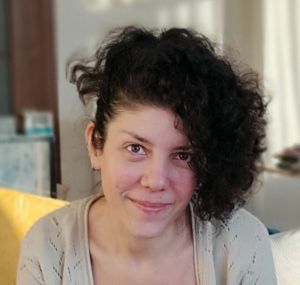canan coskan
Turkey and Bakur Kurdistan, Ph.D, Independent Researcher and Translator, affiliated to Center for Social and Cultural Psychology, Université Libre de Bruxelles, Belgium 2023
Anticolonial Resistance for a Dignified Peace in Diaspora: Identity and Understandings of Power among Kurds in Belgium

Project Summary
The Turkish-Kurdish conflict is one of the protracted and asymmetrical conflicts qualified by racialized internal colonialism in the South and West Asia. It traces back at least to the Ottoman Empire and it continues into the present, creating more victims of the violence and oppression of this conflict. Nevertheless, Kurds constitute a vivid example for powerfully resisting subaltern communities with a strong collective critical consciousness against interstate and internal colonialism. They create a collective understanding of resistance, co-construct collective conflict frames, and re-imagine a dignified reconciliation both in the homeland and in diaspora. Drawing from critical race, decolonial and liberation psychology approaches, I previously examined these relations among Kurds born and living in Turkey and Bakur (North) Kurdistan. Kurdish collective historical engagement in the homelands suggests wide possibilities for a creative manifestation of identity, power, agency and strategical action geared toward diverse negotiation and reconciliation processes by the oppressed communities. Building on this work, in the current project, together with the community members of Kurdish diaspora in Belgium, I will conduct qualitative research to collectively examine the power understandings among Kurds in relation to their identities, collective and individual political engagements, interest in homeland politics (i.e. Turkish-Kurdish conflict) and transnational solidarity (i.e. Rojava revolution).
Through different periods of Kurdish forced migration because of the asymmetrical Turkish-Kurdish conflict in the homelands, many Kurds found home in Europe and beyond, paving ways for building a Kurdish diaspora actively engaged in supporting Kurdish resistance in the homelands. Unlike Kurds in Turkey and Bakur Kurdistan, the Kurdish diaspora who emigrated from these territories has relatively more freedom of expression, which may engender different types of activism and levels of involvement. As one of the first places of asylum-seeking for Kurds, Belgium constitutes an important context of Kurdish resistance in Europe. Thus, drawing on the critical perspective of dignified peacebuilding rooted in critical race, decolonial and liberation psychology, in the current work, I will extend the examination of the identities and the understandings about the power of the oppressed as experienced by the Kurdish diaspora in Belgium. First, I will conduct semi-structured in-depth interviews with 30 Kurds who emigrated from Turkey and Bakur, Kurdistan to Belgium. Second, as an emancipatory and equitable praxis of community centered research, we will organize a participatory workshop with the Kurdish community in Belgium to share the findings of preliminary qualitative analysis of the interviews, asking their active contribution to the finalization of the qualitative analysis. Together, we will share perspectives and criticisms in order to co-create the outputs of ‘Kurdish power in Diaspora’.
I hope this work will improve our understanding of the complex relations between conflict, identity and power in the diaspora context from an anticolonial and critical race perspective. It will also help the social psychological research to gain a more critical, from-below approach in the examination of intergroup negotiations in relation to colonialism and protracted asymmetrical conflicts by understanding the role of transnational diasporization. More importantly, the findings from this research will also function as a ‘voice amplifier’ and a reflective tool of community science praxis for Kurdish communities in diaspora and support their agentic sociopolitical and cultural empowerment as activists, politicians and stakeholders continue searching ways for a dignified peace.
Bio
Dr. Canan Coskan (she/they) is an independent researcher with scientific affiliations to Center for Social and Cultural Psychology (CeSCuP) in Université Libre de Bruxelles and Institute for Interdisciplinary Research on Conflict and Violence (IKG) in Bielefeld University. They completed their Ph.D. on cultural selves of youth with migration background at the Center for Social and Cultural Psychology in University of Leuven. After a few years of precarious work as an assistant professor in the neoliberal university, they abandoned the institutionalized academia to find decentralized, collective and horizontal ways for conducting scientific research. Their research focuses on social and psychological processes of collective action, anticolonial resistance, asymmetrical intergroup relations, immigration and progressive radical social change at the margins of social, cultural and political psychologies. They rely on a critical lens that combines anarchist, anticolonial and queer feminist perspectives to disrupt the hegemonic ways of producing knowledge in psychology through community centered research. Recently, they have been conducting research on academic collective action and understandings of Kurdish power. Their work has been supported by grants from Raoul Wallenberg Institute, European Association of Social Psychology (EASP) and Society for the Psychological Study of Social Issues (SPSSI). They translate books and texts to make their living and to contribute to their communities. Raised in Istanbul, as an assimilated/erased Kurdish Alevi with blurry Armenian relationalities, they try to conduct community research that touches personal and political ground.
